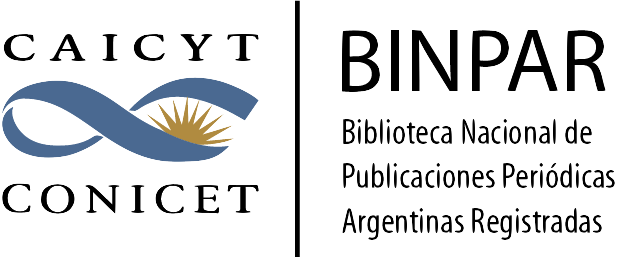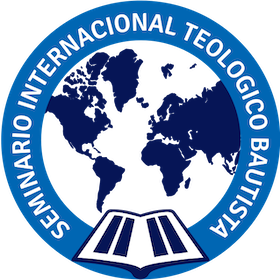Ecología y el mandato bíblico de dominio de la tierra
Palabras clave:
Creación, dominio, ecología, mayordomíaResumen
Al tomar conciencia de la crisis ecológica a mediados del siglo pasado, algunos intelectuales progresistas culparon a la cultura occidental judeo-cristiana del abuso de los recursos del planeta y de la contaminación ambiental causado por una lectura literal del mandato bíblico de “dominar la tierra” (Gn 1:28). En orden a aclarar este punto, en este trabajo nos proponemos ofrecer un estudio gramático-cultural del texto bíblico citado, ofreciendo el diverso resultado de los exégetas y proponiendo algunas respuestas consecuentes con la enseñanza bíblica y la ética cristiana.
Referencias
Anderson, B. W. (1984). Creation in the Old Testament. Londres: SPCK.
Barr, J. (1974). Man and nature: The ecological controversy in the Old Testament. Bulletin of the John Rylands Library, 55(1), 9-32.
Bauckham, R. J. (2006). Modern domination of nature, historical origins and biblical critique, en R. J. Berry, ed., Environmental Stewardship. Londres: T&T Clark.
Bauckham, R. J. (2010) The Bible and Ecology: Rediscovering the Community of Creation. Waco: Baylor University Press.
Boff, L. (2016). La Tierra en nuestras manos. Santander: Editorial Sal Terrae.
Brett M.G. (2000). Earthing the human in Genesis 1-3, en N.C. Habel y S. Wurst, eds., The Earth story in Genesis. Sheffield: Sheffield Academic Press.
Brueggemann, W. (1982). Genesis. Interpretation. Atlanta: John Knox Press.
Cobb, J. B. (2021). Is It Too Late? A Theology of Ecology. Minneapolis: Fortress Press.
Conradie, E. M. (2006). Christianity and Ecological Theology. Stellenbosch: Sun Press.
Cooper, T. (1990). Green Christianity. Londres: Hodder & Stoughton.
Feuerbach, L. (1995). La esencia del cristianismo. Madrid: Trotta.
Francisco. (2015). Laudato si’. Sobre el cuidado de la casa común.
Habel, N. C. (2000). The Earth story in Genesis. Sheffield: Sheffield Academic Press.
Hiebert, T. G. (2000) The human vocation: Origins and transformations in Christian traditions, en D.T. Hessel y R.R. Ruether, eds., Christianity and ecology. Seeking the well-being of earth and humans. Cambridge: Harvard University Press.
Ibáñez Arana, A. (1999). Para comprender el libro del Génesis. Navarra: Editorial Verbo Divino.
Lohfink, N. (1986). Le nostre grandi parole. Paideia Editrice Brescia.
Moltmann, J. (1987). Dios en la creación. Salamanca: Sígueme.
Moo, D. J. (2006). Nature in the New Creation:
New Testament eschatology and the Environment. Journal of the Evangelical Theological Society. (49)3, 449-488.
Moormann, K. (2005). Teología de la creación de un mundo en evolución. Navarra: Editorial Verbo Divino.
Pannenberg, W. (1996). Teología Sistemática. (Vol. 2). Madrid: UPCO.
Patiño Salazar, J. D. y Salas, U. S. (2021). Comunión y trabajo: el ser humano al servicio de la creación. Theologica Xaveriana, 71, 1-28.
Santmire, H. P. (2000, diciembre 13). In God’s ecology: A revisionist theology of nature. The Christian Century. https://www.christiancentury.org/article/god-s-ecology
Santmire, H. P. (2000). Nature reborn. The ecological and cosmic promise of Christian theology. Minneapolis: Fortress Press.
Uehlinger, C. (1995). The cry of the earth? Biblical perspectives on ecology and violence, en L. Boff y V. Elizondo, eds., Ecology and poverty: Cry of the earth, cry of the poor. Londres: SCM Press.
Voltaire. (1983). Cartas filosóficas. Madrid: Editora Nacional.
Welker, M. (1999). Creation and Reality. Minneapolis: Fortress Press.
White, L. T. (1967). The Historical Roots of Our Ecologic Crisis. Science, 155, 1203-1207. [Traducción al español: Las raíces históricas de nuestra crisis ecológica. https://revistas.uniandes.edu.co/index.php/nys/article/view/4736/4339].
Descargas
Publicado
Cómo citar
Número
Sección
Licencia
Derechos de autor 2024 Alfonso Ropero Berzosa

Esta obra está bajo una licencia internacional Creative Commons Atribución-NoComercial-CompartirIgual 4.0.















